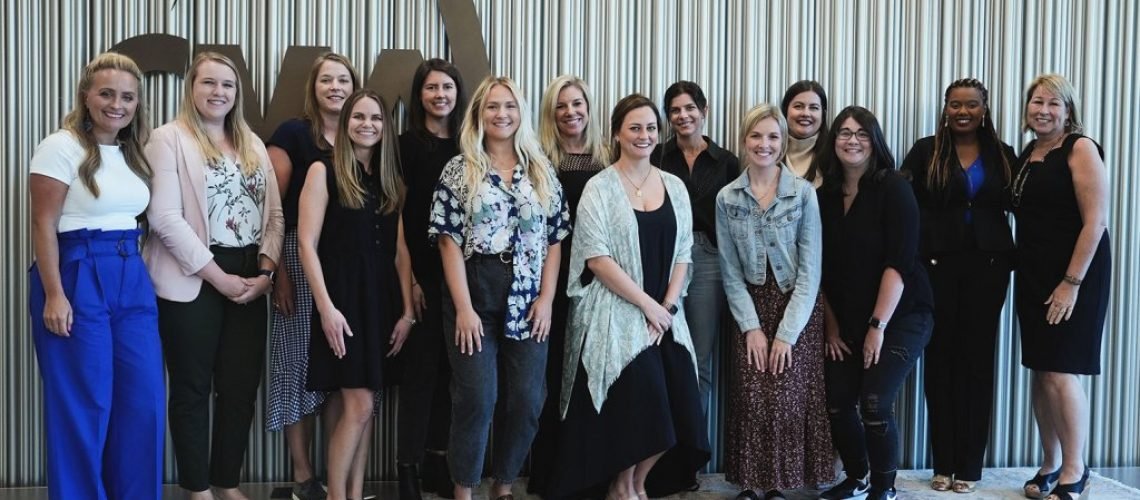As women continue facing multiple barriers to reaching executive leadership roles — including nearly three years of a global pandemic which resulted in women’s participation in the labor force dropping to its lowest level in 30 years — the Country Music Association (CMA) has launched the Women’s Leadership Academy, a 16-week program that will offer leadership training and coaching to 12 high-performing, high-potential women leaders within the country music industry.
“Throughout my career, I have participated in several leadership development and mentorship programs, and I know how valuable those opportunities were for my growth,” says CMA CEO Sarah Trahern in a statement. “I often encourage our own senior leadership team, which I am proud to say is predominantly women, to seek any opportunities that help further their own professional development, and this new program takes that same approach but applies it industry-wide. We are always mindful that our role at CMA is to keep our business strong, and as we continue to focus on expansion for the genre, so too is the need for diversifying our future leaders.”
Chosen based on recommendations and initial interest assessments, participants in the Women’s Leadership Academy’s inaugural class are Callie Cunningham Nobel (Red Light Management), Stevie Escoto (Girlilla Marketing), Lauren Funk (Endurance Music Group), Chrissy Hall (Ryman Hospitality Properties), Kara Jackson (Spirit Music Publishing), Meredith Jones (CAA), Sloane Cavitt Logue (WME), Amanda Mitchell (Farris, Self & Moore, LLC), Megan Pekar (Loeb & Loeb LLP), Jessi Vaughn Stevenson (Warner Chappell Music), Samantha Thornton (G Major Management) and Kortney Toney (Naxos of America).
Tiffany Kerns, the CMA’s vp of industry relations and philanthropy and CMA Foundation executive director, spearheads the initiative. She tells Billboard that the idea for the Women’s Leadership Academy was sparked during the CMA’s MICS (Music Industry COVID Support) initiative. For that program, Kerns oversaw bringing together representatives from several organizations — including the Recording Academy, the National Independent Venue Association (NIVA), Gospel Music Association (GMA), International Entertainment Buyers Association (IEBA) and Music Biz — to discuss how each could be of assistance to those within the music industry. Kerns says the program was also inspired in part by her involvement with the American Express Women in Music Leadership Academy in 2019.
“One of the things that kept coming up was this nervousness of women losing their place, that they have been fighting for, for decades, but also just people feeling they needed professional development,” says Kerns. “One thing that has become clear is at least 40% of our [CMA membership base is independent]…they don’t have HR departments or future-planning experts on their teams. If we can provide that resource outside of their day-to-day business, it’s just going to make their business stronger. We are constantly having conversations with our CMA members, asking what they need, what they are seeing and what they are challenged by. We heard women say, ‘I am developing networks, but I want it to be bigger,’ or ‘I want to know how I can be a better executive, not only for myself but also for the future of the business.’ When you get strong women together, changes happen.”
Cory Colton of Inflection Point Coaching and Diane Watson of Diane Watson Coaching, who lead much of the year-round professional development programming for the CMA’s 6,000+ members, facilitate the coaching during this program. One-on-one sessions were held with each participant to establish individual goals, prior to all the participants gathering on July 12 for the first of eight virtual and in-person group sessions. “We asked questions to discover what areas the participants wanted coaching in, whether that is managing up, leadership strategy, critical thinking or other areas,” Kerns says.
Going forward, the CMA-funded Women’s Leadership Academy will likely be held at least once per year. Kerns foresees the development of an alumni network as the program continues, with each class giving input into the development of the classes that follow.
Importantly, Kerns says that the Women’s Leadership Academy is part of a larger strategy the CMA is initiating to address multiple challenges facing the industry. The organization recently hired Mia McNeal as senior director, industry relations and inclusion, while it has also begun working with DEI company The Diversity Movement. The CMA also has community partnerships with organizations including mtheory and CMT’s Equal Access program, as well as Diversify the Stage, Color Me Country, Safe Tracks, Conexion Americas, Metro Nashville Public Schools and the Touring Career Workshop. It also invested in the talent pipeline via the college-based CMA EDU professional development program, as well as additional initiatives to be announced later.
“We think about the role that the CMA plays in our business,” Kerns says. “Trade associations are supposed to protect and, in many ways, develop the professionals that are in our business, because if we invest in people through resources, then the business benefits from it. As a trade association for country music, we feel that we are better positioned than anyone to provide that platform.”




